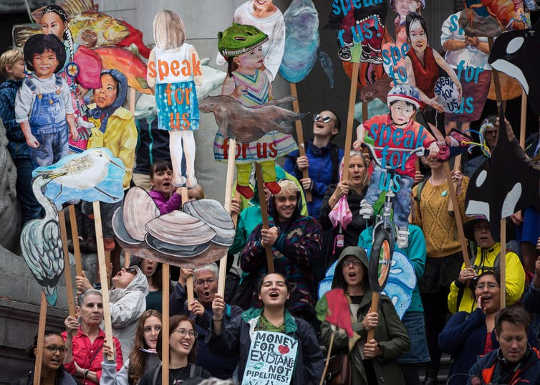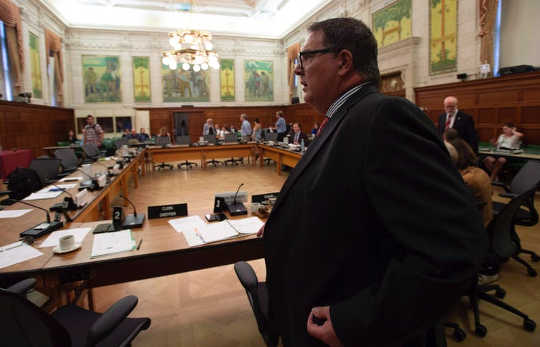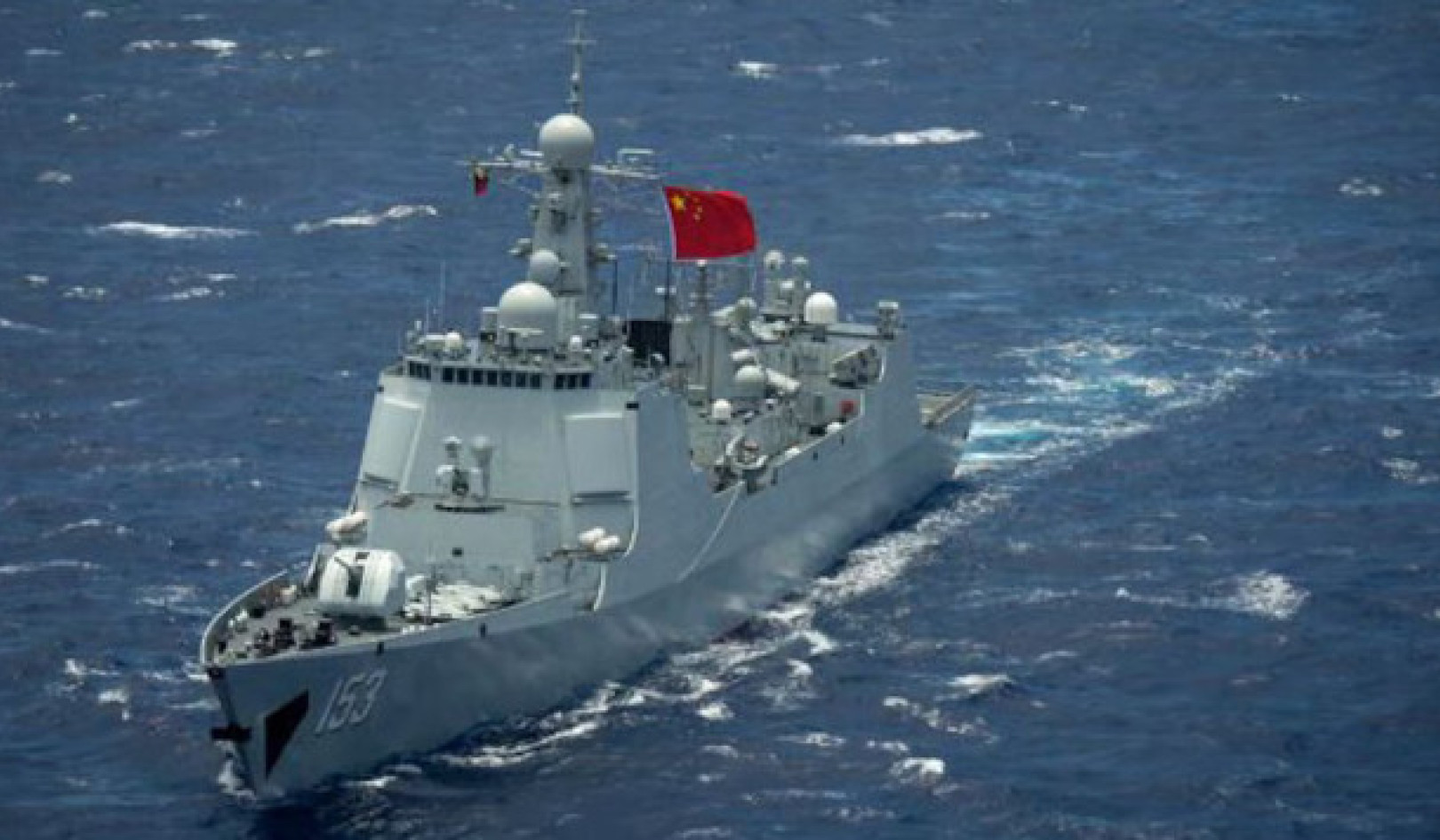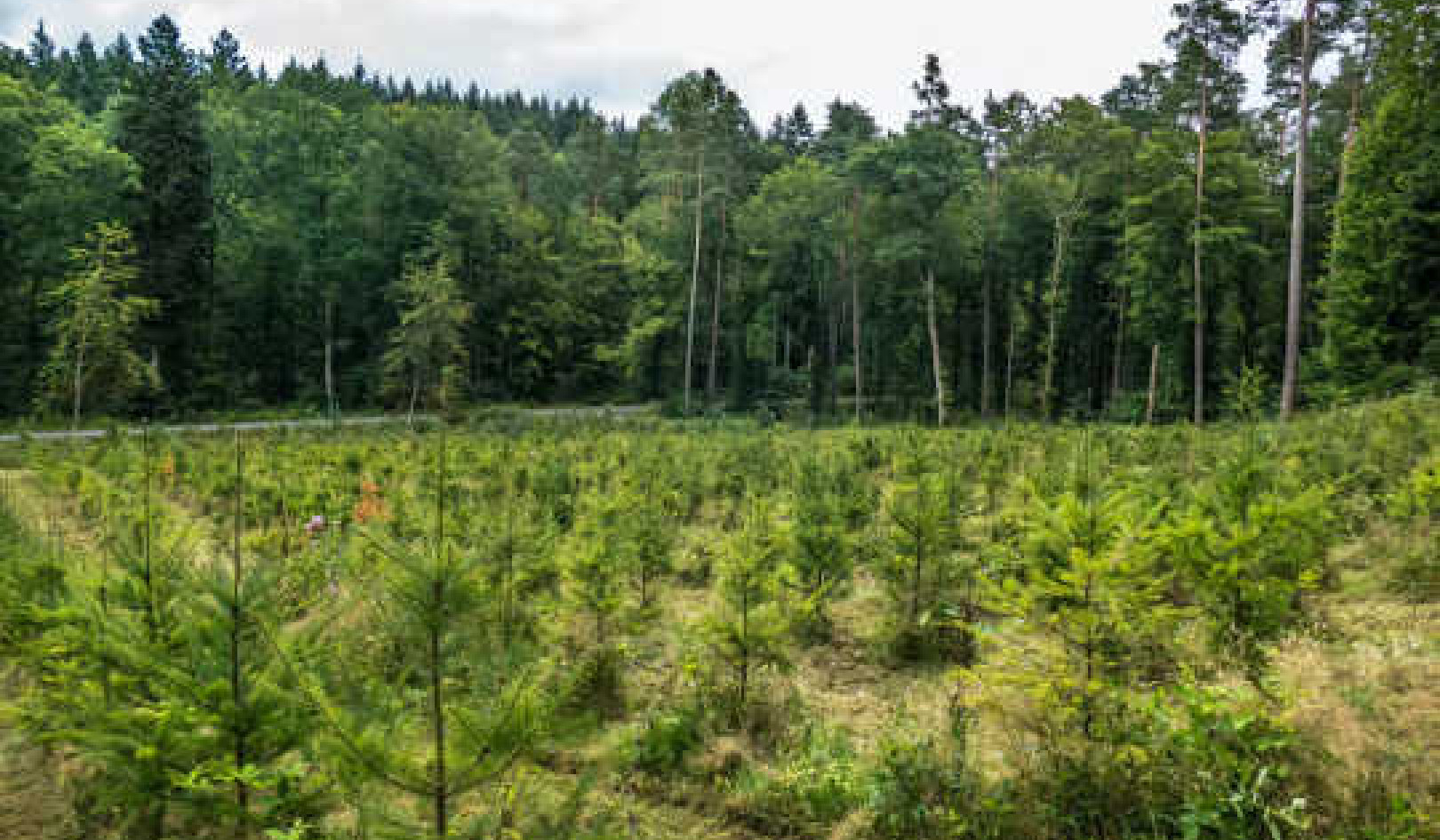 People hold artwork of various marine life and youth during a rally celebrating a recent federal court ruling against the Kinder Morgan Trans Mountain pipeline expansion, in Vancouver, on Sept. 8, 2018. (THE CANADIAN PRESS/Darryl Dyck)
People hold artwork of various marine life and youth during a rally celebrating a recent federal court ruling against the Kinder Morgan Trans Mountain pipeline expansion, in Vancouver, on Sept. 8, 2018. (THE CANADIAN PRESS/Darryl Dyck)
The decision by the Federal Court of Appeal against the Trans Mountain pipeline expansion seems to have come as a shock to the federal and Alberta governments.
In response, the Alberta government, the federal Conservative opposition and others demanded the Trudeau government take immediate action to get “shovels back in the ground.”
In reality, the Federal Court’s decision leaves the Trudeau government with few easy ways forward.
In its decision, the court highlighted the extent to which its conclusions were grounded in “largely uncontested legal principles” in Canadian law. The federal government may seek leave to appeal the decision to the Supreme Court of Canada, but an appeal could easily take more than a year to resolve.
It is also entirely possible, given the clear grounding of the Federal Court’s decision in principles established by the Supreme Court of Canada itself, that the Supreme Court could uphold the Federal Court’s decision, or even strengthen it.
Not quick or easy
The Federal Court of Appeal’s decision rested on two key elements: the federal government’s failure to undertake adequate consultation with Indigenous peoples potentially affected by the project, and the National Energy Board’s (NEB) decision to exclude the environmental impacts of increased shipping activity from the project in its review and recommendations to the federal cabinet.
 James Maloney, chair of the House of Commons Natural Resources committee, prepares to take his seat for a special meeting on Parliament Hill in Ottawa on Sept. 4, 2018. (THE CANADIAN PRESS/Adrian Wyld)
James Maloney, chair of the House of Commons Natural Resources committee, prepares to take his seat for a special meeting on Parliament Hill in Ottawa on Sept. 4, 2018. (THE CANADIAN PRESS/Adrian Wyld)
Contrary to what some have suggested, neither issue lends itself to a quick or easy resolution.
The right of Indigenous peoples to consultation is grounded in Section 35 of the Constitution Act and cannot be overridden through legislation.
Addressing the Federal Court’s objections will require meaningful and substantive engagement with First Nations and Indigenous peoples affected by the project. Such engagement will take time.
Finding appropriate accommodations with those communities will be difficult given the fundamental objections that many hold against the project.
Further litigation is almost certain in response to any decision to proceed with the project in these circumstances.
Tanker traffic
The resolution of the second issue may be almost as challenging, but in different ways.
The federal government could choose the option implied by Alberta Premier Rachel Notley and others to use legislation to remove the question of marine traffic impacts from the review.
Such an option would, of course, make a mockery of the Trudeau government’s promises to reform the federal environmental assessment process and protect the maritime environment.
As highlighted by the Federal Court in its decision, it would also likely require amendments to the federal Species at Risk Act to remove protections for affected species, notably the iconic population of southern resident orcas.
 Khelsilem (Dustin Rivers), right, elected councillor and spokesperson for Squamish Nation, embraces Tsleil-Waututh Nation councillor Charlene Aleck in celebration, during a news conference in Vancouver, on Aug. 30, 2018. (THE CANADIAN PRESS/Darryl Dyck)
Khelsilem (Dustin Rivers), right, elected councillor and spokesperson for Squamish Nation, embraces Tsleil-Waututh Nation councillor Charlene Aleck in celebration, during a news conference in Vancouver, on Aug. 30, 2018. (THE CANADIAN PRESS/Darryl Dyck)
In its initial review, the NEB itself identified “significant” risks to the marine environment and wildlife flowing from the growth in tanker traffic, but it didn’t include these risks in its final review.
If the NEB does go back and include the risks of increased tanker traffic in its report, it will likely lead to the very conclusion it sought to avoid.
Recognizing these risks would put the Trudeau government in the position of having to make a direct choice between environmental protection and economic development, something it has always sought to avoid.
Climate strategy
With respect to the federal government’s overall climate change strategy, Notley’s statement of her intent to withdraw from the Pan-Canadian Framework on Climate Change has brought already emerging issues to the forefront.
Recent provincial leadership changes have introduced new officials, notably Ontario Premier Doug Ford, who want no part in Trudeau’s national climate change strategy.
How the federal Liberals will respond to these developments remains uncertain.
Trudeau’s electoral success in 2015 hinged, in large part, on his ability to consolidate the moderate and progressive voters around the federal Liberal party. Holding that coalition together will require the Liberals to maintain some degree of environmental credibility, especially in British Columbia, Québec and Ontario. The Liberals may yet carry through on their federal carbon pricing initiative, regardless of provincial objections.
The Trans Mountain decision has brought a series of legal, political and environmental issues to a head. The Trudeau government has little time to reveal its strategy for reconciling its environmental and economic priorities. But the path it takes will influence the outcome of the 2019 federal election — and Canada’s ability to meet its international environmental obligations.![]()
About The Author
Mark Winfield, Professor of Environmental Studies, York University, Canada
This article is republished from The Conversation under a Creative Commons license. Read the original article.
Related Books
at InnerSelf Market and Amazon
























